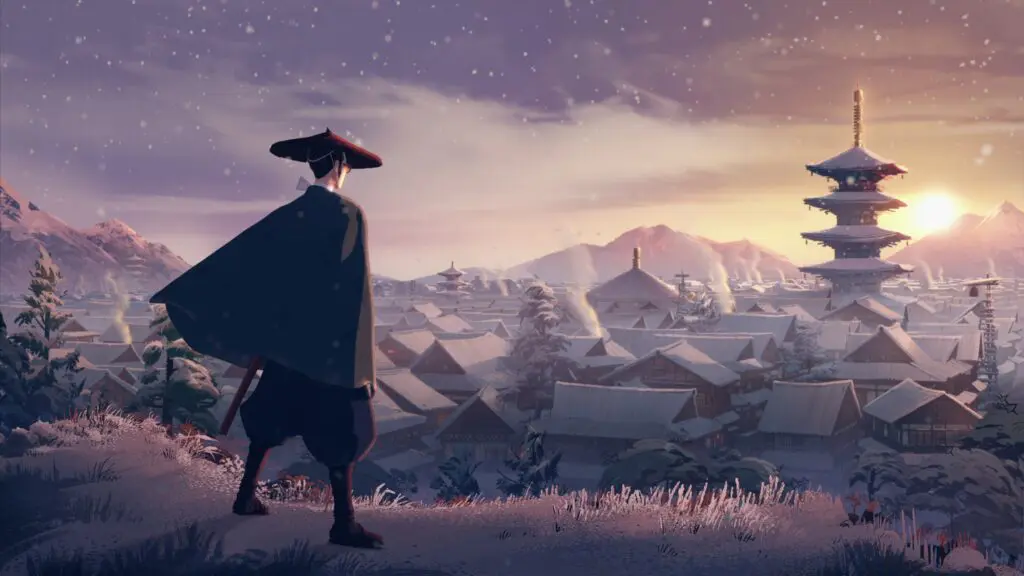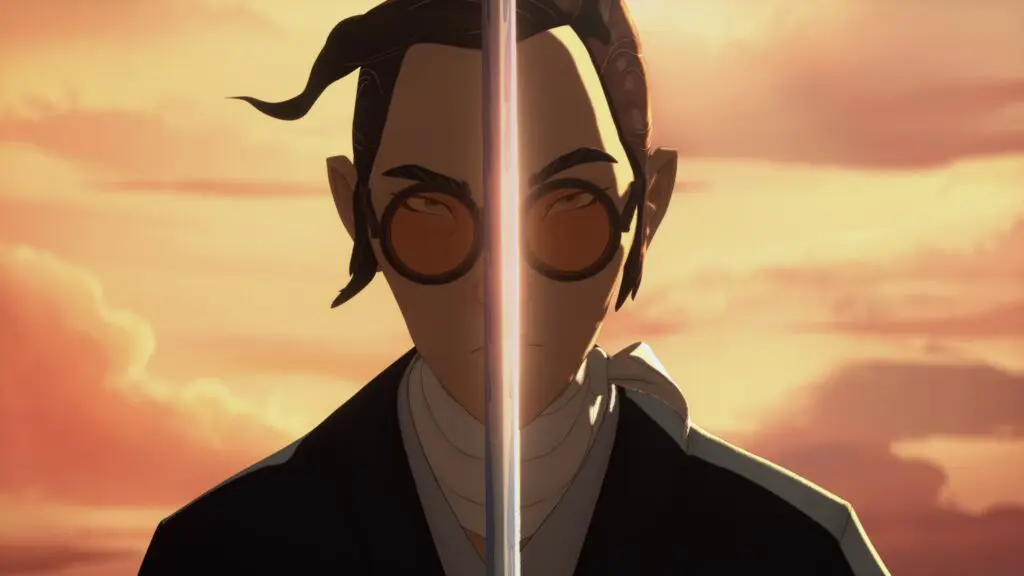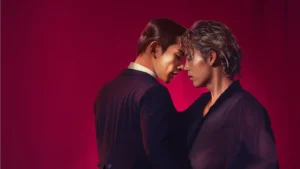Summary
Without a doubt, this is the best-animated series of the year.
Without any measure of doubt, Blue Eye Samurai is not only the best animated series this year, but it’s also one of the best on Netflix of all time. With a plethora of anime and animations released monthly on the platform, Season 1 is an incredible achievement. Created by the experienced wife-and-husband team Michael Green and Amber Noizumi (Logan, Blade Runner 2049), Blue Eye Samurai sets the benchmark with highly technical storyboarding and a well-visualized world.
Blue Eye Samurai Season 1 Review and Plot Summary
The story takes place in 17th-century Japan during the Edo period. Mixed-race Mizu (voiced by Maya Erskine), with beautiful blue eyes and a highly skilled master of the sword, embarks on a dangerous revenge mission to kill those who wronged her.
Bringing historical context, the Netflix series sets the scene: Japan in the seventeenth century had closed borders. It was a rarity to not come across anyone who was not Japanese. Mizu was wronged by white men, and she knows there were only four at the time of her birth. Due to being mixed-race and having rare blue eyes, Mizu was shamed and terrorized growing up. However, being a woman means that she is not allowed to seek revenge. Mizu must disguise herself as a male samurai while also hiding her blue eyes and embark on a revenge path in a warring Japan while honing in on her abilities and choosing who she can trust along the way.
As quoted by the co-creator Amber Noizumi on the Netflix Tudum website, Blue Eye Samurai has ties to popular stories:
“It’s an Edo-period tale of revenge — Kill Bill meets Yentl.”
On the path of revenge.
Here’s everything you need to know about Blue Eye Samurai: https://t.co/pm3HSg9XZU pic.twitter.com/NXFXVkjADw
— Netflix Tudum (@NetflixTudum) October 15, 2023
Before I even admired the beautiful colors of the animation and the technical effort to curate an inspiring world for Mizu, what struck me immediately was how it did not feel like I was watching an animated TV show. The level of commitment to the story is incredible. It’s gripping, personal, and brings a mix of emotions, with some episodes giving a sense of danger and adventure, while other chapters bring light fare and togetherness between the characters.
The storyboarding is offered on a plate: Mizu is central, but the series ties in an adage of the young noblewoman bound by the traditional nature of society. The princess wants to seek her own life and romance, but her father insists on traditionalities being imposed. Her love interest, Taigen, is set to be her husband due to being considered the best swordsman in Kyoto, but his honor and commitment to Akemi are threatened when he crosses paths with Mizu. Ringo, a man who does not see his disabilities, over-commits to help Mizu on her mission, seeing her as a “true samurai.”
Despite setting these up as subplots, they feel as important as the overarching story, and each one feels endearing and heartfelt.
Questions may point to the age rating of Blue Eye Samurai, which is set to TV-MA. This rating is accurate. The animated series does not hold back with blood, guts, and highly descriptive sex scenes. Viewers may be surprised by how far the animation goes. It pulls no punches; even pegging is on the menu.

Maya Erskine as Mizu in Blue Eye Samurai | Image via Netflix
Why Blue Eye Samurai is the best animated series this year
I wouldn’t be able to review Blue Eye Samurai without praising the production behind it. The ambitious story would not have been possible if imagination was not applied to the animation. Like Spider-Man: Into the Spider-Verse, the animated sequences make it an effortless viewing. Little was left to my imagination. I was in awe. I found myself feeling emotions for the story and the creation of it at the same time.
The Edo-period revenge story goes beyond the expected experience of an animation. It delves into self-acceptance, representation, race, the confines of traditionality, the recklessness of evil, and struggles against male-dominated societies. Blue Eye Samurai should be taken as seriously as Netflix’s The Witcher or Amazon’s The Wheel of Time.
Blue Eye Samurai is not a fleeting afterthought. It’s a must-watch. In a world of copious amounts of media, I found myself surprised, which is a rarity.
Any thoughts on Blue Eye Samurai Season 1? Comment below with your opinions.
RELATED:




